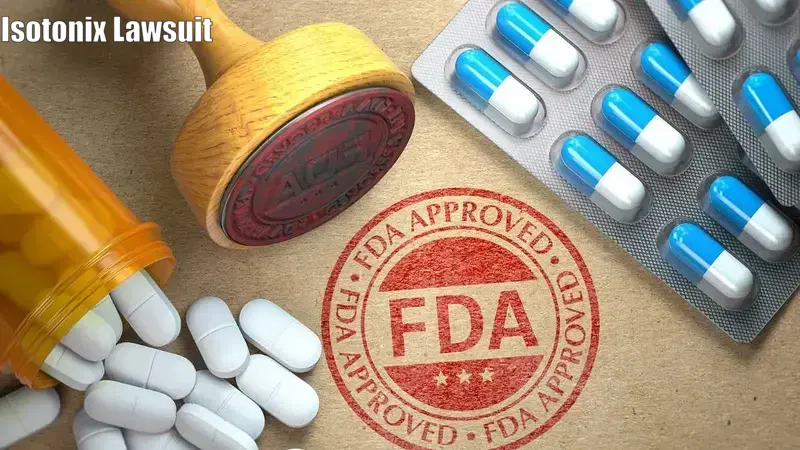The Isotonix Lawsuit has attracted growing attention in recent years. With multiple claims, regulatory scrutiny, and legal actions against Market America—the parent company behind Isotonix—the controversy remains significant. Consumers and distributors continue to ask whether the brand’s supplements are safe, ethical, and honestly marketed. This article explores the lawsuit’s details, history, allegations, and what it means for you.
What Is Isotonix and Market America?
Isotonix is a dietary supplement line owned by Market America, Inc. The products are promoted as unique because of their “isotonic delivery system”. According to marketing claims, this method supposedly enhances nutrient absorption faster than traditional supplements. Market America operates as a multi-level marketing (MLM) company, where independent distributors sell products and recruit others to join.
Why Did the Isotonix Lawsuit Begin?
The Isotonix Lawsuit stems from various allegations against Market America. The most prominent issues include mislabeling, misleading health claims, pyramid scheme accusations, and regulatory violations. These concerns raised questions about the company’s compliance with FDA and FTC rules. Over the years, lawsuits and warning letters highlighted problems with the supplements, their advertising, and the overall MLM structure.
Timeline of Legal and Regulatory Actions
2016 – FDA Observations
FDA inspections noted mislabeling issues with Isotonix products.
2017 – Pyramid Scheme Allegations
A federal class-action lawsuit claimed Market America’s MLM model resembled a pyramid scheme.
2019 – Trademark Dispute
Competitors alleged Isotonix branding caused consumer confusion, resulting in trademark litigation.
2020 – FDA Warning Letter
The FDA issued an official warning to Market America over misbranded supplements, incorrect serving sizes, and failure to report serious adverse events.
Ongoing – Scrutiny Continues
The Isotonix Lawsuit remains active with claims about false income promises, deceptive marketing, and product misrepresentation.
FDA Warnings Against Isotonix

The FDA plays a key role in the Isotonix Lawsuit. In 2020, Market America received a strong warning letter. Issues included:
-
Incorrect serving size declarations on labels
-
Failure to report adverse events, including hospitalizations
-
Misbranding dietary supplements under federal law
These violations raised public safety concerns, damaging consumer trust in the brand’s credibility and transparency.
Misleading Health Claims
One major allegation is that Isotonix products were marketed with exaggerated health benefits. Claims suggested faster absorption and even potential disease prevention, despite lacking scientific evidence. Under U.S. law, supplements cannot legally advertise themselves as treatments or cures. These questionable claims added weight to the Isotonix Lawsuit and regulatory scrutiny.
Pyramid Scheme Allegations
The Isotonix Lawsuit also highlights pyramid scheme claims. Plaintiffs argue Market America focused more on recruitment than product sales. Many distributors invested heavily in start-up kits, inventory, and training, only to face financial losses. Reports suggest that a majority of new distributors earned little or nothing, despite bold income promises promoted by the company.
Consumer Impact
The controversy has left many consumers feeling misled. Some reported side effects linked to supplements, while others expressed frustration over false health claims. Refund difficulties added to dissatisfaction. The Isotonix Lawsuit forced consumers to question supplement safety and marketing honesty. For many, trust in Market America and its Isotonix line was deeply shaken.
Distributor Losses
Independent distributors represent another group heavily impacted. The lawsuit claims most distributors invested in costly starter packages, monthly purchases, and promotional events. Yet, income returns were minimal. For some, financial losses ran into thousands of dollars. The Isotonix Lawsuit stresses how misleading income claims have left many distributors struggling with debts instead of profits.
What Regulators Say
Regulatory bodies like the FDA and FTC have pushed for stricter oversight of dietary supplement companies. The Isotonix Lawsuit has become a case study in how misleading marketing and MLM structures can exploit consumers and distributors. Regulators emphasise the importance of transparent labelling, truthful advertising, and ethical recruitment practices.
Lessons for the Supplement Industry
The Isotonix Lawsuit sends a powerful message to the supplement industry. Companies must:
-
Provide accurate product labeling
-
Ensure scientific evidence supports health claims
-
Create fair business opportunities for distributors
-
Report all serious adverse events without delay
Failure to follow these rules not only risks lawsuits but also damages consumer trust in the entire industry.
What Should Consumers Do?
If you use Isotonix products, consider the following steps:
-
Monitor your health carefully for any side effects.
-
Contact customer service regarding refund eligibility.
-
Report any serious adverse reactions to the FDA.
-
Research product claims before purchasing supplements.
The Isotonix Lawsuit serves as a reminder to always verify health product information through credible sources.
What Should Distributors Do?
For distributors impacted by the Isotonix Lawsuit, here are recommended actions:
-
Keep all receipts, contracts, and distributor agreements.
-
Review Market America’s buyback policies for unsold inventory.
-
Consider seeking legal advice if you experienced significant financial loss.
-
Document income claims and marketing promises made by recruiters.
FAQs About the Isotonix Lawsuit
Is Isotonix still being sold?
Yes, Isotonix products are still available despite lawsuits.
Can I get a refund for supplements?
Refunds may depend on the company’s return policies and state laws.
Is Market America a pyramid scheme?
The class-action lawsuit alleges it operates like one, though legal outcomes are still pending.
Are Isotonix supplements safe?
While many use them, FDA findings highlight safety and labelling concerns.
Final Thoughts on the Isotonix Lawsuit
The Isotonix Lawsuit is more than a legal battle—it’s a wake-up call. It exposes flaws in the dietary supplement industry, from misleading claims to MLM exploitation. For consumers, it stresses the importance of research and caution. For distributors, it warns against unrealistic promises. Ultimately, the case underlines a vital lesson: transparency and truth must guide the supplement market.
Read for Application Mobile Dualmedia.
